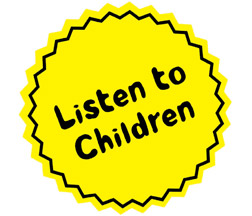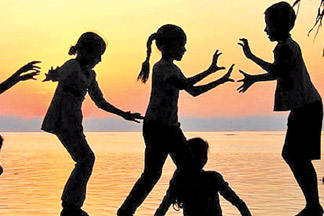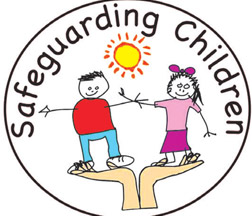A child’s safety: Home is where the harm is?
Ishara Jayawardane
 |
A mother or father is a defender of a child. They defend the child
because of love and also because survival of the species is their
instinct. As humans we are complex creatures, more complex than any
other animal in the animal kingdom. We want our children to do well at
school, secure a good job, get married and have their own
 families. In
that respect our aspirations for our children separate us from other
animals. Our society has been structured to support these aspirations.
In many countries a person who is below the age of 18 is a child.
Compulsory education is up to age 14. Fairy tales recited as bedtime
stories such as The Grimm's Fairy Tales hide a darker and sinister world
that little children today are oblivious to. In truth the world that our
children live in, is more similar to the world of the Brother's Grimm
whose stories were originally full of fear, violence and with sexual
references. Unfortunately the monsters in the closet are very real. The
wicked old witch may not be dead after all. The world our children are
exposed to is a world where sexual, physical and emotional abuse come
out of the closet. Hiding and waiting. families. In
that respect our aspirations for our children separate us from other
animals. Our society has been structured to support these aspirations.
In many countries a person who is below the age of 18 is a child.
Compulsory education is up to age 14. Fairy tales recited as bedtime
stories such as The Grimm's Fairy Tales hide a darker and sinister world
that little children today are oblivious to. In truth the world that our
children live in, is more similar to the world of the Brother's Grimm
whose stories were originally full of fear, violence and with sexual
references. Unfortunately the monsters in the closet are very real. The
wicked old witch may not be dead after all. The world our children are
exposed to is a world where sexual, physical and emotional abuse come
out of the closet. Hiding and waiting.
Aspiration and Abuse are the two qualities which separate us from
other species. Daily News spoke to Senior Research Fellow, National
Centre for Advanced Studies (NCAS) and Senior Professor Department of
Demography University of Colombo,Professor Indralal Silva and Director
Advocacy, Save the Children, Menaca Calyaneratne to find out how tangled
the path of a child in modern Sri Lankan society and hope that this
article may make a small difference.
The mother's role
 |
"The cases that are being reported are largely at the extreme level.
For example, if the child is taken to the hospital and some bones are
broken, there is an investigation as to how it happened. Doctors can
identify a genuine case of child abuse where someone has been beaten.
But there are a lot of cases within the households that are not being
reported; the child is neglected, sufficient amount of food is not
given, child is threatened by the parents, an elder brother or an
outsider. In many cases the child is innocent and does not know what to
do. In some cases of course child may report. Like in foreign countries
children take the telephone and complain to the police saying my father
is beating me. In Sri Lanka this kind of thing happens very rarely,"
explained Professor Indralal. Sri Lankan population is 20.3 million.
According to the 2012 Census, almost two million Sri Lankans are working
in foreign countries for two to 6 years in a semi permanent manner and
then they come back. From these two million, 60 percent is females.
"That means 1.2 million females are away from Sri Lanka, working
elsewhere and most of them are married and have children. Ninety percent
are married with children, fairly young children. They go to foreign
countries to work before the age of 40.
There is another group of females who go for higher education. There
is another group of females who migrate internally but unlike the
international migration those who migrate internally they can see their
children very frequently but not every day. Suppose a mother who is in
Anuradhapura migrated to Colombo because of employment, she may go back
to her family during weekends. That may be the case with the father
also. Because of international migration large numbers go to the Middle
East and elsewhere and they are away from the country and children are
left behind. Because of the globalisation and employment opportunities
available elsewhere, people now tend to work not in their own village
and town but maybe in some other country or in some other city. That
trend has increased very much. In this particular environment we observe
several types of abuses: physical abuse, mental abuse, neglect, sexual
abuse and exploitation which is happening very frequently." Who are the
caretakers of these small children when their parents are away from
home? In most of the cases, suppose the mother has gone to the Middle
East, the caretaker of the younger children are the father. If the
father is also regularly going out, the caretaker would be the elder
brother or the elder sister.
Therefore you can observe that when the mother is not there, that
protection mechanism for young children is weakened. "The mother has a
greater knowledge of how to protect the children. That is the power
given to her by nature. The father and elder children may not be able to
look after the younger children. The mother's role is much solid.
Many cases
We know that in these kinds of families, when the mother goes to the
Middle East, she regularly sends money and we have noticed that in most
of our studies, husbands who stay with their children receive this
money. Once they receive this money, a sisable proportion is spent on
alcohol. With the consumption of alcohol, the child abuse is sometimes
happening within the family itself. Therefore in many cases the father
is responsible for child abuse. From newspaper reports or the police
reports, it has been observed that children left behind in these
households are physically, mentally and sexually abused sometimes by the
father. Not each and every case, but there is an increasing trend
coupled with the alcoholism.
Sometimes the father invites some of their relatives and some of his
friends to the household - a small party for his friends. Once his
friends come there is another danger to the children in the family.
Those outsiders may engage in some child abuse. They may engage in some
sexual abuse, physical abuse or psychological abuse. We can observe this
trend in many parts of the country, urban as well as rural. Therefore,
the migration issue has caused a lot of problems in the social fabric of
the country."
"Suppose the mother is not there and only the father is there, he
needs to manage the entire household activities on his own. But as a man
he needs to go and work and earn some money.
Then he has to look after the entire household. Not only the
household activities but the children also. It is more than a double
burden on the husband. Therefore he consumes alcohol. There is a heavy
stress on him. Therefore he beats and scolds the children, verbally and
physically abusing them.
He may not be in a position to cope with this problem. A sisable
number of cases have been reported of incest - the mother has gone to
another country, father engages in sexual activities with daughters and
these daughters get pregnant. And the danger is that this jeopardises
the entire family. I have seen in some places where daughters tend to
deliver children with all kinds of abnormalities. Congenital
abnormalities are there, because of the incest.”
Important issue
There is another danger associated with the sexual abuse of children.
The People who engage in sexual abuse of children have a fear that they
may be traced somehow by the police or the neighbors, if the child is
alive. They think that if the child is killed there is no one to tell.
“Therefore the predator kills the child. That is the situation we are
observing now. The media has to handle these cases very carefully. If
the predator comes to know that he can be identified by the witness, he
will destroy the child.”
The migration issue is linked with another problem which is called
family change in Sri Lanka. “What is meant by family change is that in
the past, we had extended families. We had grand parents, uncles,
relatives in the same building or the same household. But now 80 percent
of the families are nuclear; husband, wife and few children. Therefore
that is a style we can even observe in the remote areas. Families are
getting smaller and they are getting nuclear. Therefore the total safety
network which worked in the past for the benefit of the children has
disappeared. Father has to go to work, mother has to go to work and
children are neglected, in some cases, abused by someone else. The
Social Network is very much loose now. There are only a few members in a
family and those members tend to go out very frequently, for employment
and education. Therefore children are left behind.

This leads to another very important issue. The family bonds within
the nuclear family have also deteriorated. Father engages in business
activities all the time. Children are occupied with the TV or the
Internet most of the time. Mother engages in routine household
activities and during her leisure time she is also occupied with the TV.
The child maybe in his own room looking at the computer or the Internet.
He is exposed to all the websites available. They do not sit together at
the table even at dinner time. That also has an impact on the child.
That kind of family environment is not conducive to develop a good
family protection mechanism. But some countries like Singapore and
Malaysia have developed many programmes. They encourage people within
the family to come together and eat together.”
Safeguarding the child
Director Advocacy, Save the Children,Menaca Calyaneratne commented on
several other sources of child abuse.
“The state of public transport is indeed appalling for all Children.
Children are most vulnerable as they are unable to raise their voices in
such situations and no one comes forward to support them. Media too
should take responsibility for this situation, because some of the
programmes especially on radio continue to humiliate female presenters
as well as call-in female listeners. This endorses eve teasing in our
society. But it is a huge problem for girl children. Some even drop out
of school due to harassment in public transport. Men and boys need to
understand that starting from ‘Eve-teasing to molestation, it makes girl
children very uncomfortable. Parents and teachers should bring up boy
children to respect all women. It is indeed sad that those who are there
to protect children abuse their power, authority and trust and abuse
children. Parents and other adults need to believe children when they
report such behaviour. School Development Societies, Past Pupils
Associations should also be more vigilant about what goes on in a school
other than academic achievements. I must stress on the fact that
children’s safety should be ensured when the schools take them on trips.
I think our education system should take measures to safeguard children
at all times, but especially when they are in the care of teachers and
principals.
Save the Children, urges every parent to know where their children
are at all times, what they are up to and develop close relationships
with their children. “Developing a close relationship will help parents
to notice anything that is unusual in their behaviour and take remedial
action without delay. In this techno-age parents also need to keep up
with their techno-kids. Electronic media has to take more care about the
content of their programmes. Our tele-dramas may block out scenes of
alcohol consumption and smoking. But they show violence and abuse
against women. All these make a huge impression on young people.”
The most important thing is safeguarding the child. “We also have a
separate code of conduct for staff, partners and anyone associated with
Save the Children, about their behaviour when working with children.
Within our project areas we have set up Child Protection Groups (CPG) in
the villages to identify children who are at risk of abuse and take
action to protect them. These groups which are made up of village
elders, government officials, parents and children have proved to be
very effective. We have been able to resolve hundreds of cases through
these CPGs. Punishments vary due to the crime.
However, we as Save the Children would like to see cases where
children are abused are expedited within the legal system. Much has been
done in this regard by the Ministry of Justice. We have even supported
them to set up a special children’s court which is child friendly.
Judges and magistrates also are trained on the best interest of
children.” |





